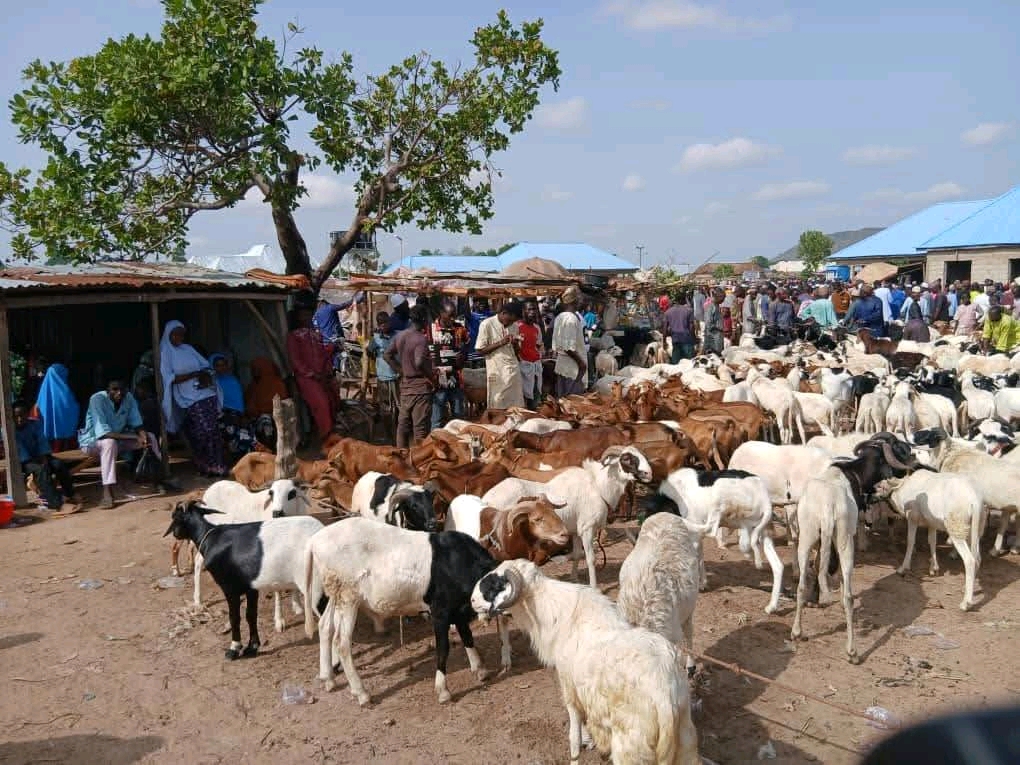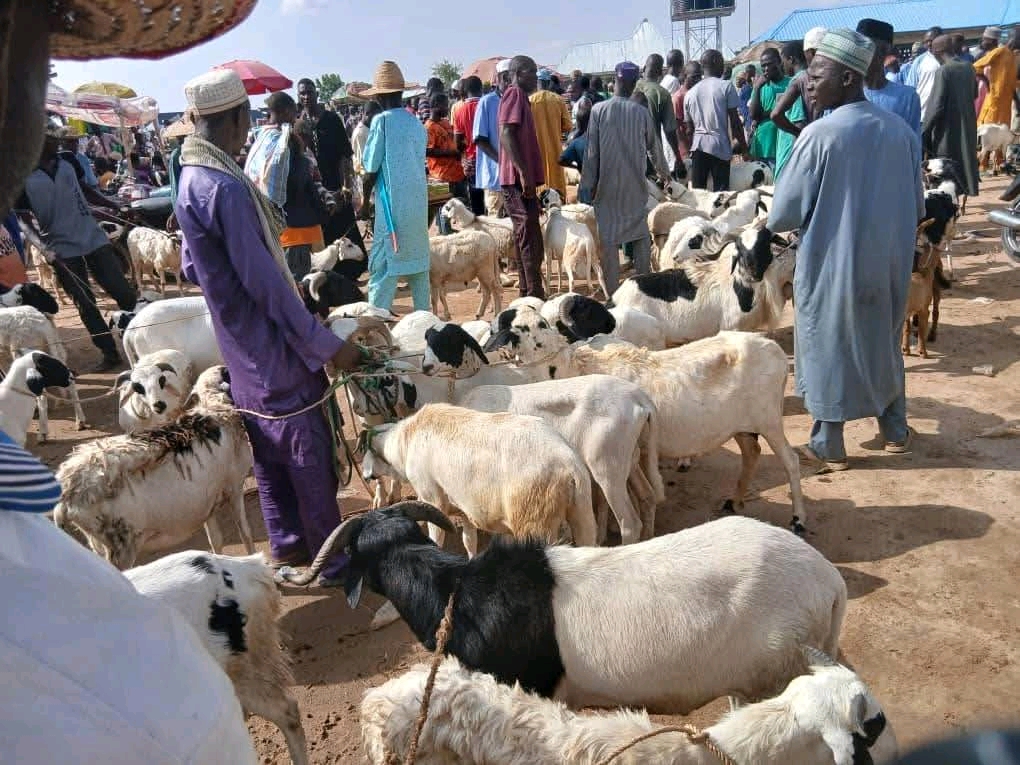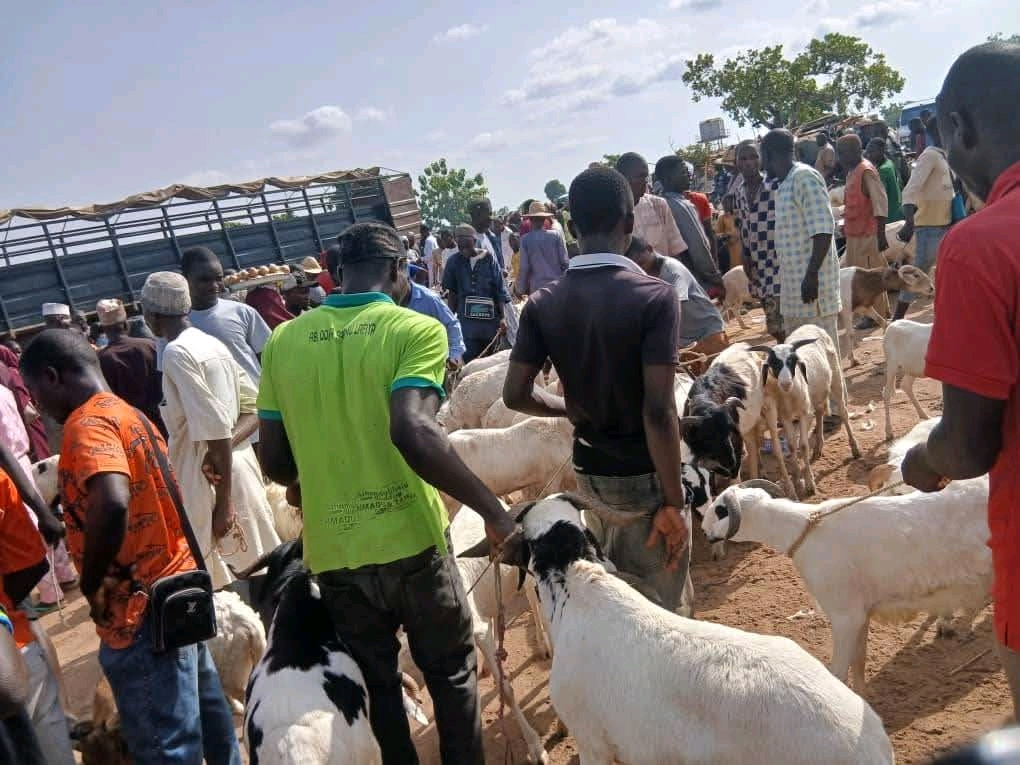Lukman Abdulmalik
Eid-el-Kabir is few days away from today.
Despite a significant drop in supply and soaring prices, Ram sellers in Kano are grappling with unexpectedly low sales.
A visit to some livestock markets, Hauran Shanu, Garu, Tishama, and Wudil, revealed a growing concern among traders.

The low turnout of buyers has been linked to both economic hardship and a ban on livestock exports from the Niger Republic, a major supplier of animals during the festive season.
The military government in Niger has imposed a ban on livestock exports, including Rams, Goats, Cows, and Camels into Nigeria, citing concerns over domestic shortages following severe floods in Niamey, Maradi, and Tawa that killed thousands of animals.
Abdullahi Imam, a livestock trader from Niger, said the authorities are strictly enforcing the ban.
“Police, immigration, the army, and even local chiefs have been mobilized to seize animals being transported across the border.
“Many animals have already been confiscated,” he said.

Yet, despite the reduced supply, customer turnout is still lower than last year.”
The supply shortfall has caused a dramatic increase in prices. Just a week ago, large rams were selling for between ₦800,000 and ₦1 million. They now start at ₦1.2 million. Medium sized rams go for about ₦500,000, while smaller ones start at ₦150,000.
Musa Nura, a resident of Dorayi, said, “An average ram now costs between ₦130,000 and ₦170,000. If it’s this bad before Sallah, I fear what the prices will be during the actual celebration.”
Another buyer, Ali Sani, shared that group contributions have become his only option.
“We’ve been doing this for the past three years, contributing as a group to afford a ram. It’s still within Islamic teachings, and honestly, it’s the only realistic choice now.”
Abdullahi Salihu, a civil servant earning ₦71,000 monthly, lamented that the Eid sacrifice is now beyond his means.
“How can I afford a ram that costs ₦170,000? The cheapest I saw at Garu Market was still too expensive. This is more than just a ban issue, it’s an economic crisis,” he said.
In response to the disruption from Niger, Nigerian livestock traders are seeking alternative sources in Cameroon and Chad.
“Niger has always been a major supplier, especially during Eid.
“We’re already bringing in animals from Cameroon and Chad, but prices will still be affected by forex rates and logistics costs,” said Malam Abdullahi Abdul, a veteran merchant at Wudil Market.
Alhaji Bello Guri, another trader, called for patience, assuring that supply will improve.
“We’re seeing more local livestock rearers now, and animals are also coming in from neighboring countries. A major shortage may be avoided, even if prices rise slightly.”
Analysts say the current crisis is a symptom of deeper, long-standing issues in Nigeria’s livestock sector.
Dr. Aminu Rimi, a livestock specialist, highlighted challenges such as animal rustling and outdated practices.
He called for full implementation of the National Livestock Transformation Plan (NLTP) to modernize the sector and make livestock more affordable and available.
Kano-based policy analyst Ibraheem Muazzam pointed to the political context of Niger’s export ban.
“Since the military coup, Niger has taken several economic decisions aimed at asserting its independence and regional influence. This ban isn’t just about livestock, it’s a strategic message to Nigeria and ECOWAS,” he explained.

With the festive period drawing closer, many Nigerians are caught between tradition and economic reality. For some, group contributions offer a path forward; for others, the sacrifice may simply be unaffordable this year.
While regional markets may ease immediate supply pressure, experts agree that only long-term reforms can stabilize Nigeria’s livestock sector and protect consumers from recurring price shocks.

